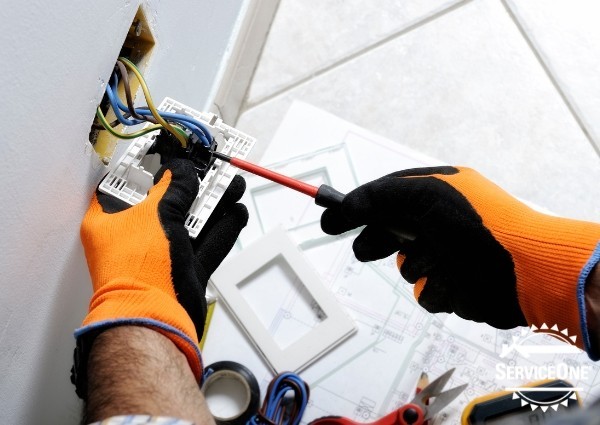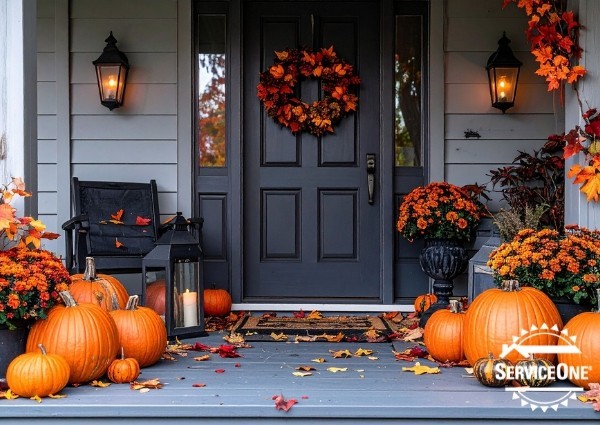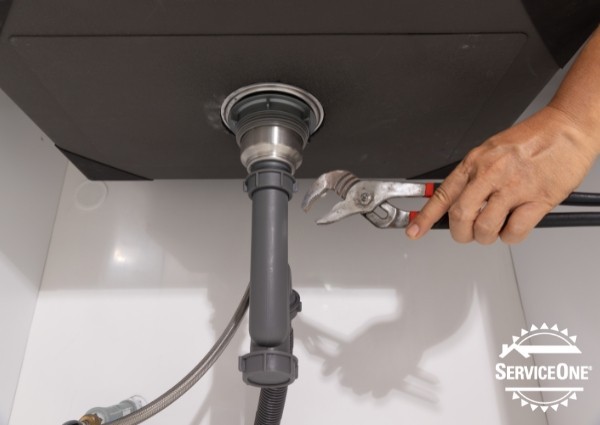Throughout the Midwest, winter is in full swing! From recent snow storms to upcoming freezing temperatures, the winter chill is certainly setting in. When the temperatures become frigid outside, one big concern among homeowners is freezing plumbing pipes. Frozen plumbing pipes can lead to pipe bursts, water damage and a headache that no homeowner wants to endure. Fortunately, with some proactive steps, you can prevent frozen pipes and, if you find yourself facing a frosty plumbing situation, know how to handle it.
At ServiceOne, we are your One Simple Solution. From plumbing repairs and maintenance to heating and cooling, indoor air quality and more, we can help ensure your home is performing properly and efficiently. Below, we go over ways all homeowners can prevent their pipes from freezing, as well as what to do in the event your pipes do end up freezing.
Preventing frozen pipes
Frozen pipes can happen to anyone, but preparing your pipes will significantly reduce your chances of running into this issue. Here are some things all homeowners can do to prevent their plumbing pipes from freezing:
Insulate exposed pipes
Start by identifying any exposed pipes in your home, such as those in unheated basements, crawl spaces or attics. Insulate them with pipe sleeves or wrapping to provide a barrier against the cold.
Keep the heat on
Maintaining a consistent indoor temperature, even when you’re away, can help prevent frozen pipes. Avoid setting the thermostat too low, especially during severe cold snaps.
Open cabinet doors
In kitchens and bathrooms, open cabinet doors to allow warm air to reach pipes located near exterior walls.
Let faucets drip
On exceptionally cold nights, let faucets connected to vulnerable pipes drip slightly. The flow of water can help prevent freezing.
Seal gaps and cracks
Seal any gaps or cracks in your home’s exterior walls to prevent cold drafts from reaching your plumbing.
Disconnect outdoor hoses
Before winter sets in, shut off outdoor water sources and disconnect and drain outdoor hoses.
What to do if your pipes freeze
Even with precautions, pipes can sometimes freeze. If you ever suspect that your pipes are frozen, here are some things you should do ASAP:
Keep faucets open
Turn on the affected faucet, even if it’s just a trickle. This can relieve pressure as the ice begins to melt.
Apply heat
Gently apply heat to the frozen section of the pipe using a hair dryer, heating pad or towels soaked in hot water. Start near the faucet and work your way toward the blockage. Although you want to apply heat to the area, it’s important to avoid using open flames or torches to thaw pipes, as this can be extremely dangerous.
Call a professional
If you’re unable to thaw the pipe yourself, or if you suspect the pipe has burst, it’s essential to call a professional plumber immediately.
What do to do if your pipes burst
Freezing plumbing pipes can end up leading to pipe bursts, which not only can cause significant damage to your home, but cause massive headaches along the way. If you have a pipe burst this winter, here’s what you should do right away.
Shut off water
Locate your home’s main water shut-off valve and turn it off to stop the flow of water to the damaged pipe.
Drain faucets
Open all faucets to drain the remaining water from your plumbing system.
Call a plumber
Contact a licensed plumber to assess the damage and perform necessary repairs.
Document damage
Lastly, take photos and document any damage for insurance purposes.
When it comes to freezing plumbing pipes, prevention is key. By taking these proactive steps and knowing how to react if your pipes do freeze, you can navigate the winter season with confidence and protect your home from the headaches of plumbing problems during cold spells.
At ServiceOne, we are here to help in the event of a frozen pipe! Give us a call today with any of your plumbing needs or concerns.



